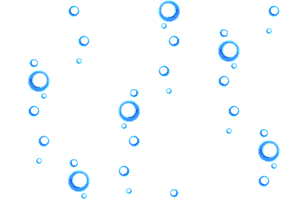
Academy of Underwater Arts & Sciences Presenter of the NOGI Award


Sam Ginther
Marine Ecology – 2013
Although interested in nature from an early age, Sam’s passion for the underwater world really took hold as he began college at the University of California Santa Barbara. After being exposed to a variety of marine related courses, he decided to pursue a B.S. in Aquatic Biology, specifically taking courses geared towards marine science. Between Sam’s second and third year at UCSB, he finally convinced his parents to provide him with a loan to pay for his basic open water SCUBA certification and SCUBA gear. After Sam’s first dive at the Channel Islands he could not get enough. Sam decided to become American Academy of Underwater Sciences scientific dive certified and in 2010 he sought work at the Santa Barbara Coastal Long Term Ecological Research (SBC-LTER) project under the direction of Dr. Daniel Reed. While working for the SBC-LTER project Sam was able to fine-tune his diving skills, while more importantly, contributing to a long-term project that monitors the kelp forest ecosystem off the Santa Barbara coastline. By collecting data and samples of organisms that inhabit kelp forest ecosystems he helped to contribute to an understanding of the patterns and controls of community structure and primary production in giant kelp forests, the primary habitat found off the coast of the western United States. While diving for the SBC-LTER project Sam became exposed to research and knew that this is what he wanted to do for the rest of his life.
Upon completion of his degree and his time with the SBC-LTER project, Sam was awarded a Research Experience for Undergraduates (REU) through the Moorea Coral Reef Long Term Ecological Research (MCR-LTER) project and served as a field assistant to Drs. Russell Schmitt, Sally Holbrook, and Andrew Brooks. During his time as an REU, Sam lived, dove, and worked 7 days a week in one of the most beautiful places in the world from June to September 2012. While in Moorea, Sam assisted with an ongoing project focusing on coral reefs and mechanisms that control reef recovery after disturbances. This had been Sam’s first time diving in coral reefs and he was able to experience first hand both the beauty of coral reefs and the destruction that can occur in this system. Sam gained a better understanding and new hope for our world’s oceans after researching reef resilience following a major perturbation. Sam is learning that even though man has helped to destroy much of the ocean or has exhausted much of its resources, there are still ways for humans to alter the current course of action. Sam was inspired at seeing how a reef can naturally rebuild itself.
After spending time with the SBC- and MCR-LTER projects Sam decided that his life would be especially worthwhile if he were able to stay involved in research that is applicable. Sam is interested in studying aspects of the ocean that can benefit humans in a particular way. Specifically, he has chosen to study fish ecology under the advisement of Dr. Mark Steele (California State University Northridge) in hopes that he can produce better quality information to influence management decisions regarding one of the world’s most important food resources–fish.
